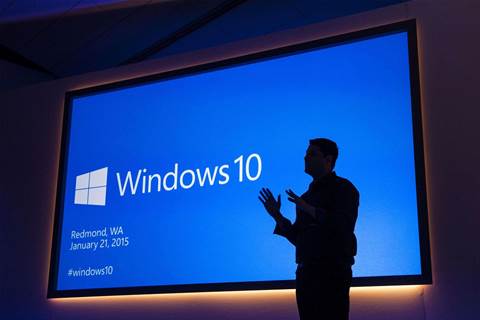Microsoft has quietly revealed that it will offer free extended security updates (ESUs) to some Windows 7 users.
As spotted by the sharp-eyed experts at Licensing School, the offer is buried deep in the 1 June 2019 Microsoft Product Terms document (.doc).
On page 110 the document explains the offer applies to “Users licensed with Windows E5, Microsoft 365 E5, or Microsoft 365 E5 Security SLs through an Enterprise Agreement or Enterprise Agreement Subscription as of December 31, 2019”. Those users “may use up to five simultaneous devices to run a local Operating system environment (OSE) covered by Windows 7 ESU for 2020 or access virtual OSEs covered by Windows 7 ESU for 2020 without the need for a Windows 7 ESU license.”
It’s also possible to “acquire Windows 7 ESU 2021 & 2022 and Windows 7 ESU 2021 & 2022 for Microsoft 365 licenses for such devices without the need to acquire the 2020 ESU license if the devices were used solely by Qualified Users for the duration of the ESU 2020 coverage period. These devices must be assigned ESU licenses for all respective years if used by any users not currently licensed with Windows E5, Microsoft 365 E5, or Microsoft 365 E5 Security SLs.”
News of this promotion is significant because Microsoft is very, very keen for users to migrate away from Windows 7 to Windows 10 before the older OS reaches end of supported life in February 2020. For those who want to stay in Windows 7, Microsoft has offered free ESU for virtual desktops in Azure. As a cloudy construct, those virtual desktops attract monthly fees!
This promotion appears to be less a crack in Microsoft’s resolve than a reflection of reality – some enterprise customers just won’t be able to make a swift jump to Windows 10 and won’t want to cop ESU fees. By making ESU available in a limited fashion, to a subset of customers, and as a promotion, Microsoft will keep some customers happy without opening the floodgates for the rest of the market.




_(21).jpg&h=142&w=230&c=1&s=1)
.jpg&h=142&w=230&c=1&s=1)







.jpg&w=100&c=1&s=0)








_(1).jpg&q=95&h=298&w=480&c=1&s=1)


